FIVE-STAR TEAM WARRANTY &
SAME-DAY SERVICE
Longevity of Residential Sewer Line Pipe Materials: A Comparative Analysis
Residential sewer lines are an essential part of any home’s plumbing system. They are responsible for carrying wastewater from household fixtures and appliances to the municipal sewer system or septic tank. However, over time, these pipes can deteriorate, leading to leaks, clogs, and other issues. Therefore, it is crucial to choose the right pipe material that can withstand the test of time.
There are several pipe materials available in the market, such as PVC, cast iron, clay, and concrete. Each material has its advantages and disadvantages, and it is essential to understand their longevity to make an informed decision. This article will explore the longevity of different pipe materials for residential sewer lines, providing readers with the necessary information to make informed decisions about their plumbing systems.
Material Analysis for Sewer Pipes
PVC Pipes: Pros and Cons
PVC pipes are a popular choice for sewer lines due to their low cost, lightweight, and ease of installation. They are resistant to corrosion, root intrusion, and chemical attacks. PVC pipes have smooth walls, which prevent clogs and improve flow rates. However, they are susceptible to damage from high temperatures, sunlight, and impact. PVC pipes are also not recommended for areas with high water pressure or heavy traffic.
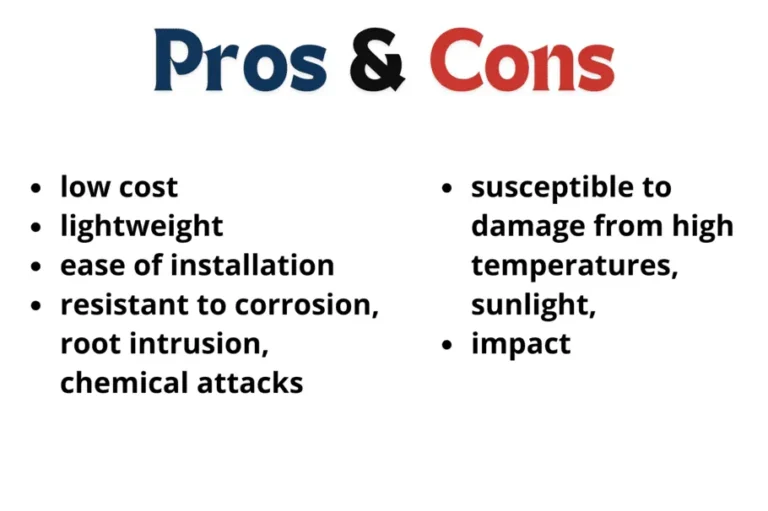
Cast Iron Pipes: Durability and Challenges
Cast iron pipes have been used for sewer lines for over a century due to their strength, durability, and fire resistance. They are resistant to high temperatures, corrosion, and root intrusion. Cast iron pipes can withstand heavy loads and traffic, making them ideal for urban areas. However, they are heavy, expensive, and difficult to install. Cast iron pipes are also prone to rust, which can lead to clogs and leaks.
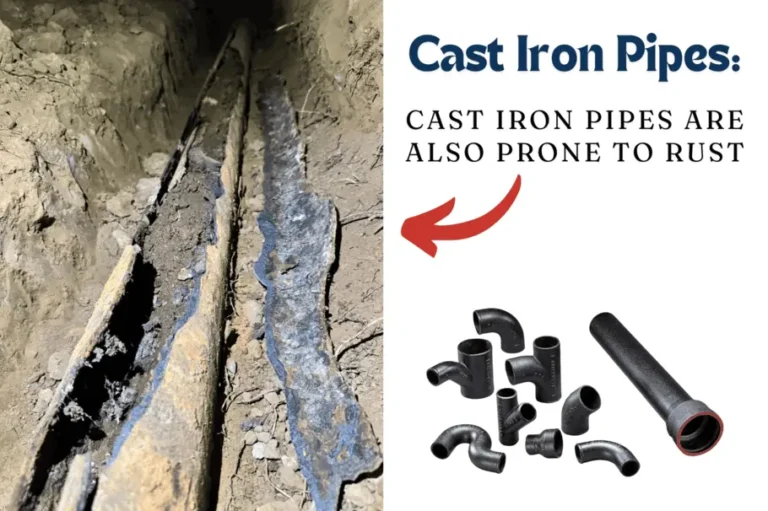
Clay Pipes: Historical Use and Modern Relevance
Clay pipes have a long history of use in sewer systems due to their durability, fire resistance, and chemical stability. They are resistant to root intrusion, corrosion, and high temperatures. Clay pipes are also eco-friendly and can be recycled. However, they are brittle and can crack under heavy loads or ground movement. Clay pipes are also susceptible to clogs from debris and sediment buildup.
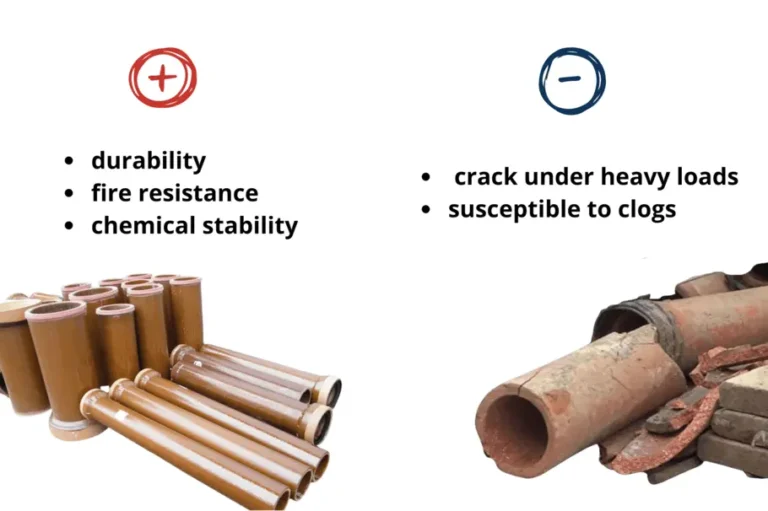
Asbestos Pipes: Strengths and Limitations
Concrete pipes are known for their strength, durability, and resistance to corrosion and root intrusion. They can withstand heavy loads and traffic and are ideal for deep sewer lines. Concrete pipes are also fire-resistant. However, they are heavy, expensive, and difficult to install. Concrete pipes can also crack under ground movement and temperature changes. Since asbestos is only hazardous if it’s damaged, piping in good condition isn’t of immediate and urgent concern. If the piping is fraying, crumbling, broken or otherwise damaged, however, it may be hazardous.
Orangeburg Pipes:
The material composition of the pipes, which is made from layers of wood pulp and pitch, inherently limits their durability compared to modern materials. Environmental conditions, such as soil acidity and moisture levels, can accelerate the deterioration of these pipes. Ground movement and pressure from above can cause sagging or deformation, further reducing their lifespan. The presence of tree roots and the type of soil around the pipes can lead to root intrusion, causing blockages and damage. Additionally, the quality of the original installation, including proper bedding and alignment, plays a significant role in their longevity.
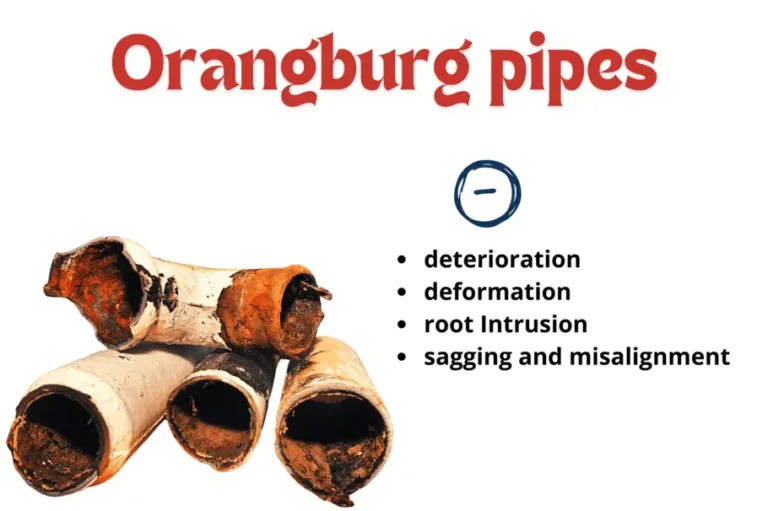
In summary, each material has its own strengths and limitations, and the choice of material depends on the specific needs of the project. It is important to consider factors such as cost, durability, installation, and maintenance when selecting a sewer pipe material.
Factors Affecting Pipe Longevity
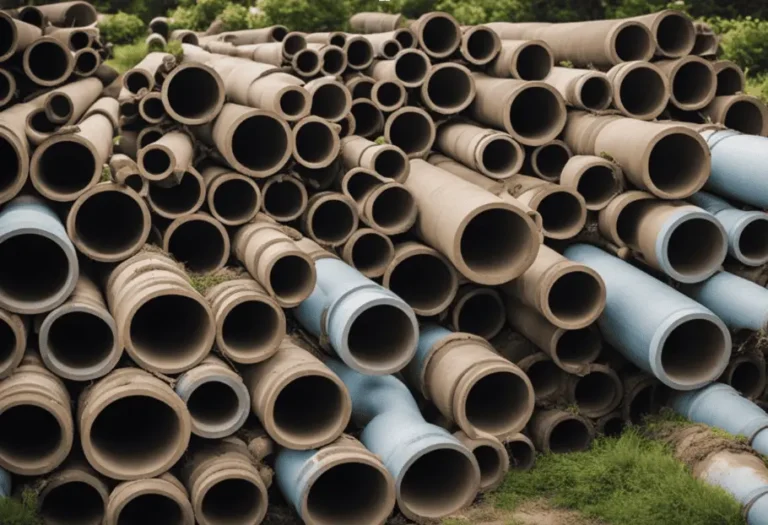
Soil Characteristics and Pipe Materials
The type of soil that a pipe is installed in can have a significant impact on its lifespan. For example, clay soils can be highly corrosive and cause premature deterioration of certain pipe materials. On the other hand, sandy soils can be less corrosive and may allow for better drainage around the pipe.
Different pipe materials also have varying levels of resistance to soil corrosion and abrasion. For example, PVC pipes are highly resistant to corrosion and abrasion, while cast iron pipes are more susceptible to corrosion.
Impact of Water and Sewage on Pipe Lifespan
The quality and composition of the water and sewage that flows through a pipe can also affect its longevity. For example, acidic or alkaline water can cause corrosion of certain pipe materials, while high levels of hydrogen sulfide in sewage can cause corrosion and odor problems.
In addition, the velocity and pressure of the water and sewage flowing through the pipe can also impact its lifespan. Higher velocities and pressures can cause more wear and tear on the pipe, leading to premature failure.
Installation Techniques and Long-Term Performance
The way in which a pipe is installed can also affect its long-term performance. Proper installation techniques, such as ensuring adequate support and proper alignment, can help prevent damage and premature failure.
In addition, the use of appropriate bedding materials and backfill can also impact the lifespan of a pipe. For example, using sand as a bedding material can help distribute loads and reduce stress on the pipe.
Maintenance Requirements for Various Pipe Types
Different pipe materials have varying maintenance requirements to ensure their longevity. For example, some pipe materials may require regular cleaning to prevent buildup and blockages, while others may require periodic inspection for signs of corrosion or damage.
It is important for homeowners to understand the maintenance requirements of their particular pipe material to ensure its longevity and prevent costly repairs or replacements.
Post views: 648
Latest posts

Does LED Flickering Mean an Electrical Problem?
What California Homeowners Need to Know
LED lights are popular in California homes because they use less energy...
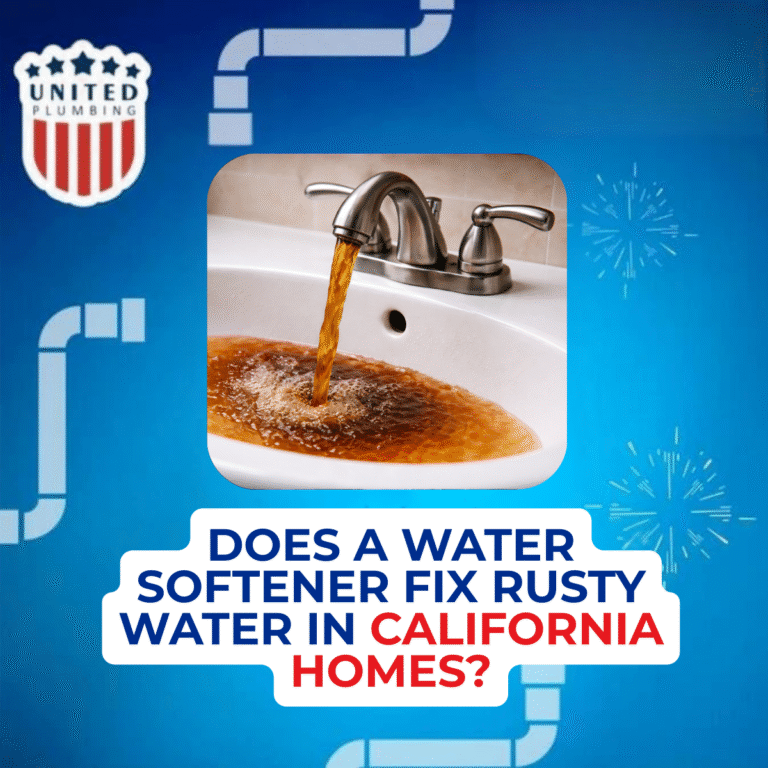
Does a Water Softener Fix Rusty Water in California Homes?
If you’re seeing brown, orange, or reddish water coming from your faucets, it’s normal to wonder if a water softener...


If you still have questions or need advice, please leave a request and we will contact you as soon as possible
Need a plumber and got no clue where to start?
(408) 539-6936Facing a plumbing issue? Get a FREE in-person estimate and quick solutions from our skilled technicians, ensuring your home runs smoothly again!
